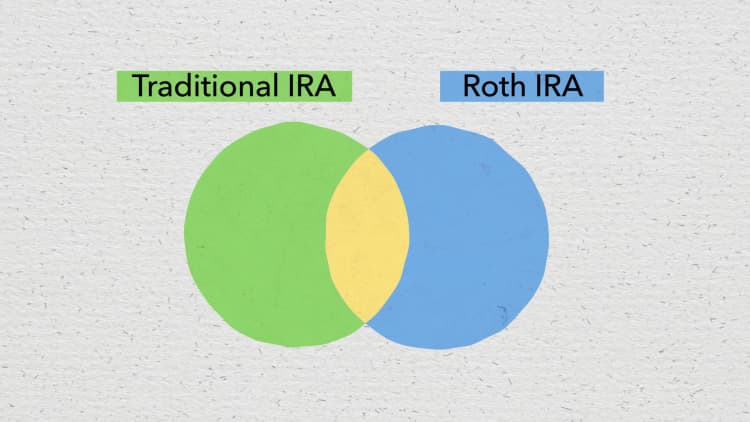For investors, it may be a good time to stop and take stock of your financial strategy, says Suze Orman, host of the "Women & Money (and Everyone Smart Enough to Listen)" podcast and co-founder of emergency savings firm SecureSave.
More from Grow:
How to take advantage of the greatest predictor of success in markets
The 7 levels of financial freedom, according to a self-made millionaire
How much you’d have if you invested $1K at start of bull market in 2020
There's no one strategy that will be right for every kind of investor. But if you're making some of the most common mistakes Orman sees investors make, like the three detailed below, you're likely costing yourself money in the long run, the financial guru says.
1. Your holdings aren't diversified enough
When the bull market was in full charge for much of 2020 and 2021, many investors gravitated toward funds that had performed well recently, such as Cathie Wood's ARK Innovation ETF. "People loved Cathie Wood, and that's all they bought. And they think because they bought one ETF that they're diversified. How foolish can you be?"
The problem, points out Orman, is that although funds like Wood's hold a variety of stocks, the portfolio is still a relatively narrow one centered around a particular theme. When that particular corner of the market suffers, as it has of late — the ETF in question is down some 56% from its February 2021 peak — your portfolio could be hurt by the losses.

Video by Mariam Abdallah
Given recent market swings, it has become even more important to spread your bets among funds with exposure to a wide swath of different asset classes, Orman points out.
"You need to have diversification in your portfolio, especially in times like these," she says. "Otherwise, you're going to find yourself down 80%, and remember: For something to go from 100 to 50 is a 50% loss. From something to go from 50 back to 100 is a 100% gain. So don't be a fool."
2. You're not investing through downturns
If you have been seeing red numbers in your portfolio, you may have been tempted to hit the brakes on your investments until things cool off a bit. But if you're a young investor who is decades away from retirement, shying away from a declining market is a huge mistake, says Orman.
"You want the market to go down," she says. "If you're 35 years old, you don't want to be putting money in every month to something that is already really high."
When markets are in decline, it can feel scary to put more money in. But by investing a set amount of money at consistently intervals — a practice known as dollar-cost averaging — you can get rewarded in the long run for continuing to buy stocks when they go on sale.
"When mutual fund shares go down, the more shares your money buys. In the long run, the more shares you have, the more money you'll have when the markets go up again."

Video by Helen Zhao
One easy way to follow this strategy is to direct your employer to divert money from each paycheck into a workplace retirement account, such as a 401(k). Many such plans offer a matching contribution to employers who save through the plan, a perk you'd be unwise to ignore just because markets are falling, Orman adds.
"You're a total fool if during times when markets decline you freak out," she says. "And if your employer matches your contribution you're a double fool. A fool squared."
3. You're not taking advantage of a Roth
Retirement savings accounts, such as 401(k) and IRAs, come in two major flavors: traditional and Roth. Traditional accounts come with an upfront tax break — money that you contribute to them can be deducted from your taxable income for the year that you make the contribution. In exchange for the break, you'll owe tax on any money that you withdraw from the account in retirement. And if you take the money out before age 59½ you'll owe tax plus a 10% penalty.
Roth accounts work the reverse way. You fund these accounts with money you're already paid taxes on but you reap the tax reward later on. Once you turn 59½, provided you've held the account for at least five years, money you withdraw is tax-free.
Plus, in a contributory Roth, you can withdraw up to the amount that you've contributed any time without owing taxes or a penalty regardless of your age or how long the account has been open.

Video by Courtney Stith
Whether you'd wise to invest using one or the other is up for debate and depends on your financial situation. But for young investors, the choice is clear, says Orman: "If you're in the accumulation phase, you're a fool if you're not taking advantage of a Roth IRA."
Assuming you're early in your career, odds are "you're not in that high a tax bracket," she notes. "And even if you are, you're better off taxes today and being able to accumulate, if you follow the rules, tax-free, for you and your beneficiaries."
You could also avoid running into some of the problems associated with bringing in taxable income in retirement, Orman adds. "If you're thinking further ahead, that's going to count against income that could make your Social Security taxable. It counts against your Medicare Part B premiums. You have required minimum distributions that you have to take. And when you die, and the account goes to your beneficiaries, they may be in a higher tax bracket, and they have to pay taxes on it when they withdraw."
The views expressed are generalized and may not be appropriate for all investors. The information contained in this article should not be construed as, and may not be used in connection with, an offer to sell, or a solicitation of an offer to buy or hold, an interest in any security or investment product. There is no guarantee that past performance will recur or result in a positive outcome. Carefully consider your financial situation, including investment objective, time horizon, risk tolerance, and fees prior to making any investment decisions. No level of diversification or asset allocation can ensure profits or guarantee against losses.
The article "Suze Orman: 3 Investing Mistakes That Will Likely Cost You 'Money in the Long Run'″ was originally published on Grow (CNBC + Acorns).



